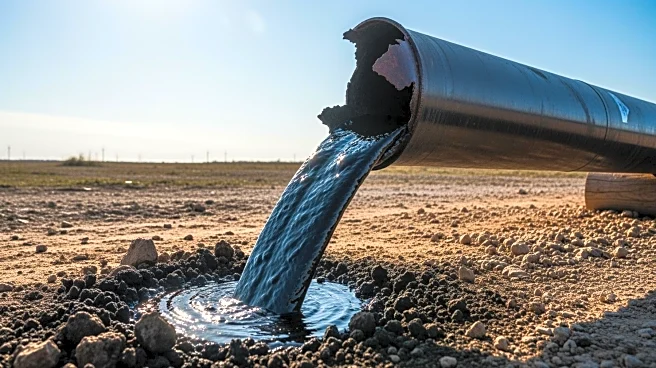What's Happening?
The Nigerian Senate is currently investigating a massive oil theft scandal that has resulted in the loss of $300 billion. Auditors appointed by the Nigerian parliament have revealed that the stolen oil was sold illegally both domestically and internationally.
The Senate committee, led by Senator Ned Nwoko, has proposed the establishment of a special court to prosecute those involved in oil theft and suggested using state funds to reduce pipeline sabotage. Nigeria's oil production has been declining since its peak of 2 million barrels per day in 2016, largely due to oil theft and pipeline vandalism. These issues have deterred investment in the country's oil sector, which is crucial for reversing the production decline. Recent legislative efforts, including a new energy industry law and tax incentives introduced by President Bola Tinubu, aim to improve the situation by encouraging foreign investment and boosting production efficiency.
Why It's Important?
The oil theft scandal has significant implications for Nigeria's economy, which heavily relies on oil exports. The loss of $300 billion represents a substantial economic setback, affecting government revenue and investment in infrastructure and social services. The ongoing theft and vandalism discourage foreign investment, which is essential for revitalizing Nigeria's oil industry. The proposed measures, including the establishment of a special court and legislative reforms, are critical steps towards addressing these challenges. Successful implementation could lead to increased oil production, improved investor confidence, and enhanced economic stability. However, failure to effectively tackle these issues may result in continued economic decline and increased social unrest.
What's Next?
The Nigerian Senate's investigation is ongoing, with the potential for further revelations regarding the extent of the oil theft. The interim report suggests that the final tally of losses could be even higher. The proposed special court and legislative reforms are expected to be key components in the government's strategy to combat oil theft and vandalism. Stakeholders, including foreign investors and local communities, will be closely monitoring the government's actions and their effectiveness in reversing the decline in oil production. The success of these initiatives could lead to renewed interest from international oil companies and a boost in Nigeria's economic prospects.
Beyond the Headlines
The oil theft scandal highlights broader issues of corruption and governance in Nigeria. Addressing these systemic problems is crucial for ensuring long-term economic stability and development. The scandal also underscores the need for improved security measures and infrastructure investment to protect Nigeria's oil resources. Additionally, the situation raises ethical questions about the exploitation of natural resources and the equitable distribution of wealth generated from them. These deeper implications may influence future policy decisions and international relations.















